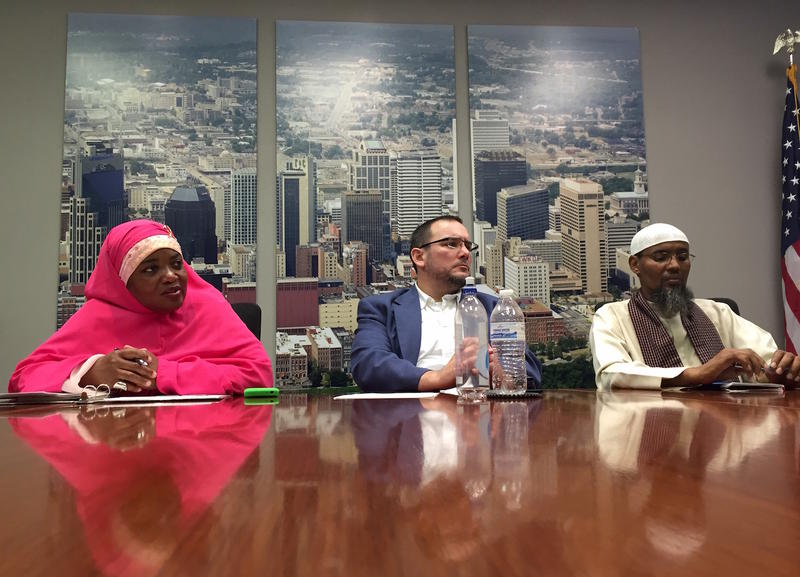
Davidson County Sheriff Daron Hall says he wants jail guards to better understand the practices and beliefs of Muslim inmates. So he has accepted a request from local Muslim leaders to teach “Islam 101” classes for jail staff, and he plans to hire a part-time advocate as a go-between with inmates.
Hall’s moves follow a recent sit-down meeting with highly influential Islamic leaders. And they come at a time when the Muslim community is growing, along with their presence inside county jails.
“Let me be very blunt about it: We need a much better understanding in law enforcement, in this country, in this city, anywhere, to understand the various cultural issues,” Hall said in opening the July 12 meeting. “We need help understanding what the sensitivities about various religious and other aspects are so we’re not stomping all over what is a very precious feeling.”
Guards have learned to accommodate prayer times and dietary needs, Hall said. But there’s still the chance of causing friction, simply for lack of knowledge.
He used the case of a DUI arrest as an example. While his team handles DUI defendants most days, he said they might not realize “that’s very offensive as it relates to the use of alcohol … they’re unaware of the sensitivity to that in the Muslim faith.”
‘Minimal’ Training, So Far
The Davidson County Sheriff’s Office has run “cultural awareness” training for years, but it hasn’t been delivered by Muslims.
“The quality and the impact of that is minimal at best,” Hall told WPLN.
So the sheriff took the sit-down meeting with local imams and members of the American Muslim Advisory Council (AMAC), which is also meeting with the Tennessee Bureau of Investigation and the field office of the FBI.

Muslim leaders want to teach about their faith and establish a connection with Hall so that they can voice concerns. In exchange, they said they’d go back into their communities with explanations about the justice system.
Hall clarified several times, for example, how his deputies don’t make arrests. That’s the work of Metro police, who turn over inmates to the sheriff’s office. (The office also delivers court summons and eviction notices, among other duties.)
Paul Galloway, executive director of AMAC, said the group wants to be versed in the policies that govern the use of force in jails and what triggers local authorities to initiate deportation proceedings.
“Just to make sure the Muslim community knows how to be both a good ally to law enforcement — and also can exert our civil rights,” Galloway said.

He said the meeting was called now to foster relationships during a “non-crisis” time, a point emphasized by former-police-sergeant-turned-Muslim activist Annette Martin.
“My mission — inshallah, as we say, Lord’s will — is to bring that group together,” she said. “As long as we’re separated and we’re not coming together there will always be that friction and that problem. It’s that lack of understanding.”
Hall will send top administrators and all new hires through “Islam 101” first, and then he wants to incorporate the lesson into in-service training for current staff.
He’s also looking to AMAC to nominate candidates for the new part-time Muslim advocacy position. That person will work in jails and neighborhoods to relay messages, starting with the need for more Muslims to volunteer within the jails — a point made by the imams who see disgruntled letters from inmates.
“It’s very refreshing to have a sheriff who wants to know more,” Galloway said.


